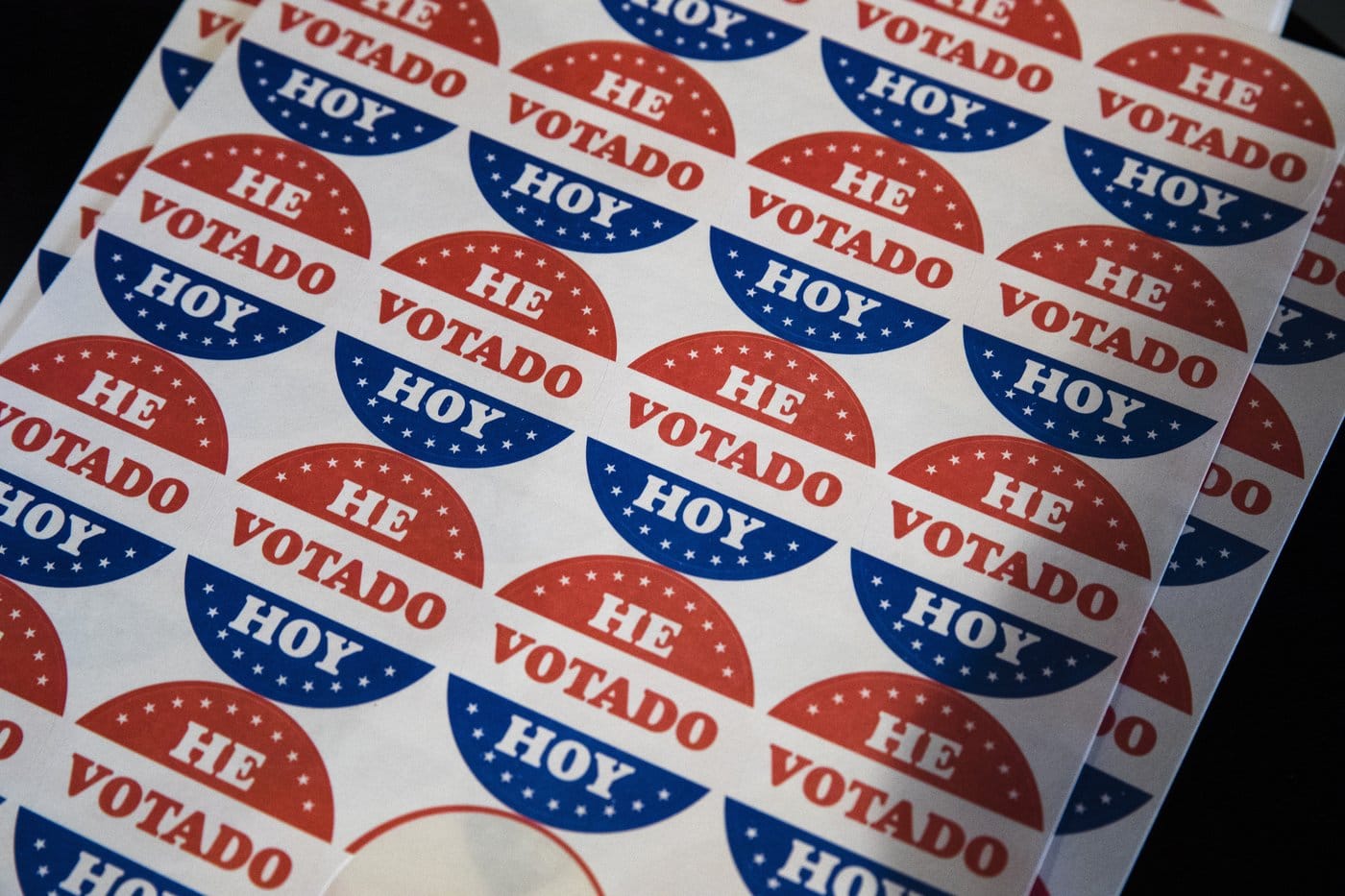The majority of Hispanic Americans are in favor of abortion access: An AP-NORC survey
The AP-NORC poll, conducted from September 12 to 16, reveals that Hispanic Protestants and Catholics, despite their theological differences, share similar demographics and perspectives on key issues such as abortion and immigration.

For decades, political analysts have often characterized Hispanic Americans as "socially conservative," and while many indeed hold such views, a recent poll from The Associated Press-NORC Center for Public Affairs Research indicates that a significant majority within this diverse community—regardless of religious affiliation—believe abortion should be legal in most or all circumstances.
This finding is particularly relevant as abortion access takes center stage ahead of the U.S. elections on November 5. Vice President Kamala Harris, the Democratic presidential candidate, is a staunch supporter of abortion rights, while her Republican opponent, former President Donald Trump, highlights his Supreme Court appointments that contributed to the overturning of Roe v. Wade.
The AP-NORC poll, conducted from September 12 to 16, reveals that Hispanic Protestants and Catholics, despite their theological differences, share similar demographics and perspectives on key issues such as abortion and immigration.
Post-Roe v. Wade Perspectives on Abortion
The poll shows that approximately 40% of U.S. Hispanics identify as Catholic, around one-third as Protestant or "other Christian," and about 25% as religiously unaffiliated. Among Protestants, nearly half identify as evangelical or born-again, while about 10% of Catholics fall into that category.
Notably, around 60% of Hispanic Protestants and about two-thirds of Hispanic Catholics believe abortion should be legal in all or most cases. A similar proportion thinks Congress should enact a law to ensure access to legal abortions nationwide, aligning with views from other major religious groups in the U.S., except for white evangelical Protestants, only about 25% of whom support abortion rights.
While the Catholic Church officially opposes abortion, a majority of U.S. Catholics across various demographics advocate for abortion rights. Ali Valenzuela, a professor at American University studying Latino politics, notes that many Hispanics previously held anti-abortion views due to their religiosity. He attributes the shift to the "changed political reality" following the Supreme Court’s 2022 decision, which endangered abortion access in many states.
About 40% of Hispanic Protestant and Catholic registered voters consider abortion policy one of the most crucial issues for their vote in November, although they also prioritize the economy, healthcare, crime, and immigration.
Harris vs. Trump in the Presidential Race
In terms of the presidential race, Hispanic opinions on Harris and Trump are divided. Approximately 40% of Hispanic Protestants view Harris favorably, while about half of Hispanic Catholics share that sentiment. Trump also garners favorable views from around 40% of both groups.
Lorraine Martinez, a 68-year-old Californian, emphasizes her Catholic upbringing and its influence on her values of kindness and community care. As a former schoolteacher, she prioritizes immigration and education and plans to vote for Harris, opposing mass deportations and advocating for reproductive rights.
Pam Butcher, 54, from West Virginia and a Trump supporter, believes abortion should be illegal except in specific circumstances. She values her faith and asserts that the nation was founded on religious principles, arguing against the complete removal of religion from public discourse.
Gabriela Maldonado, a 20-year-old Catholic from Chicago, plans to vote for Trump, citing her opposition to abortion while acknowledging medical necessities. She believes Republicans are better equipped to address her concerns about the economy, crime, and immigration.
Twenty-one-year-old Haylee Rader from California prioritizes inflation, highlighting the high cost of living, while also expressing her views on immigration, advocating for a more effective legal process for asylum seekers.
In the poll, about half of Hispanic Protestant and Catholic registered voters identified immigration as a top voting issue, with only about 10% saying it is unimportant. Roughly 60% believe religious groups should assist immigrants living in the U.S. illegally, mirroring broader American sentiments.
Neither Trump nor Harris has a clear advantage among Latino Catholics regarding immigration, though Latino Protestants tend to trust Trump slightly more on the issue.
Other Findings from the Poll
Church attendance patterns among Hispanic Protestants and Catholics are similar, with about 20% attending weekly, 40% at least once a month, and 20% never attending.
Around 70% of Hispanic Catholics speak a language other than English at home, compared to about half of Hispanic Protestants.
About 60% of Hispanic Catholics view Pope Francis favorably, while only about 30% of Hispanic Protestants do.
The political landscape for Hispanic Americans is complex, as evidenced by ongoing election campaigns featuring Hispanic candidates in key Senate races. U.S. Rep. Ruben Gallego, a Democrat in Arizona, is the son of Colombian and Mexican immigrants, while Republican Bernie Moreno in Ohio emigrated from Colombia as a child.
Contrasts in opinions on abortion are evident, with Samuel Rodriguez, head of the National Hispanic Christian Leadership Conference, warning that the Democrats' staunch support for abortion rights could alienate some Hispanic voters who favor restrictions on later-term abortions. Meanwhile, in New Mexico, Democratic Governor Michelle Lujan Grisham has announced the construction of a state-funded abortion clinic to serve residents and those traveling from states with stringent abortion bans, framing it as a commitment to reproductive freedom.
The poll, which surveyed 2,028 adults from September 12-16, 2024, utilized a sample from NORC’s AmeriSpeak Panel, designed to be representative of the U.S. population. The margin of sampling error is plus or minus 3.1 percentage points.





